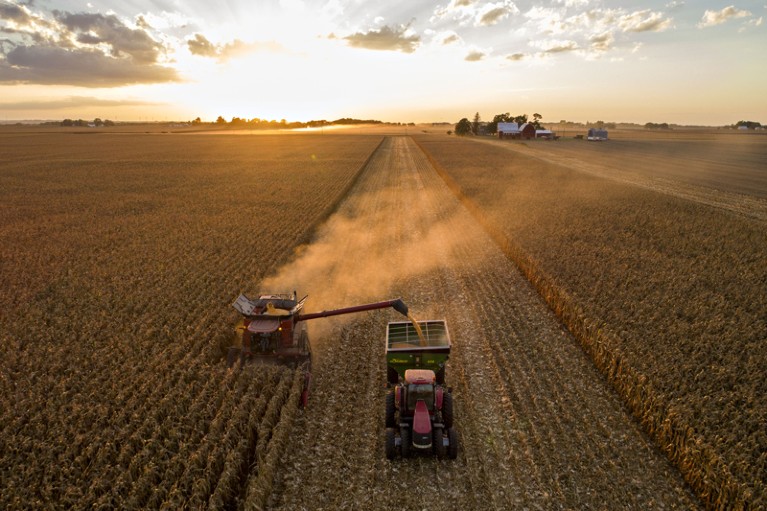Green maize fields stretching to the horizon are part of the iconography of the United States. But a nationwide analysis suggests that air pollution caused by the cultivation of maize (corn) takes a high toll on human life.
With favourable weather, US farmers can raise more than 385 million tonnes of maize a year. To quantify the health consequences of the crop’s production, Jason Hill at the University of Minnesota, Saint Paul, and his colleagues tallied up maize yields, air-quality impacts and deaths related to air pollution across the United States.
The researchers found that the air pollution released by maize production causes 4,300 deaths annually. More than 70% of those deaths stem from farms’ use of nitrogen-based fertilizers, which emit ammonia that is converted to a deadly type of pollutant called fine particulate matter.
Maize farming’s health costs could fall if fertilizer levels were precisely tailored to a field’s needs, the authors say.




